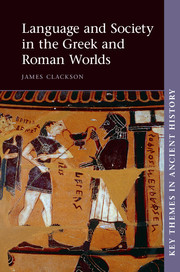Book contents
- Frontmatter
- Contents
- List of maps
- List of figures
- List of tables
- Acknowledgements
- List of abbreviations
- 1 The linguistic ecology of the Mediterranean
- 2 States of languages/languages of states
- 3 Language and identity
- 4 Language variation
- 5 Language, gender, sexuality
- 6 The languages of Christianity
- Conclusion: Dead languages?
- Bibliographic essay
- References
- Index
- Plate Section
4 - Language variation
Published online by Cambridge University Press: 05 May 2015
- Frontmatter
- Contents
- List of maps
- List of figures
- List of tables
- Acknowledgements
- List of abbreviations
- 1 The linguistic ecology of the Mediterranean
- 2 States of languages/languages of states
- 3 Language and identity
- 4 Language variation
- 5 Language, gender, sexuality
- 6 The languages of Christianity
- Conclusion: Dead languages?
- Bibliographic essay
- References
- Index
- Plate Section
Summary
Introduction
Variation is an inherent property of human language. Biological and physical factors mean that it is very difficult for two people to reproduce exactly the same pronunciation of a particular word, or even for a single person to utter the same sounds when speaking at a different volume, or when sleepy, breathless, or intoxicated. Human language has inbuilt mechanisms to overcome this variation in the sound of utterances, but it has taken decades to develop sophisticated voice-recognition software, and automated speech-to-text devices are still unable to match humans in the ability to correlate spoken language with particular words, as is very clear to anyone who has ever struggled to make their words understood on an automated telephone line, or watched a television news broadcast with live captioning. Linguistic variation also encompasses choice of individual vocabulary items and word-endings, or selection of different syntactic rules. A vast amount of modern linguistic research in the last sixty years has greatly increased our understanding of variation in speech, and its relationship to social status and language change.
However, as the examples of voice-recognition software or live captioning show, in modern societies written language exhibits a far more restricted range of variation than speech. This is especially true for the phonology (the sounds of language), where the almost infinite variety of noises that a human can produce is mapped onto a much smaller number of distinct letter-forms or signs. But it is also the case for other areas of language; even though less formal written styles are nowadays found in text messages, tweets or emails, most educated people avoid writing down vocabulary items and sentence structures that they may utter in everyday conversation. In modern western cultures where nearly all of the population is literate, most written texts are not direct transcriptions of speech, but are framed within the norms and styles inculcated by education and the models provided by books, newspapers, articles, essays and blogs.
- Type
- Chapter
- Information
- Language and Society in the Greek and Roman Worlds , pp. 96 - 122Publisher: Cambridge University PressPrint publication year: 2015



